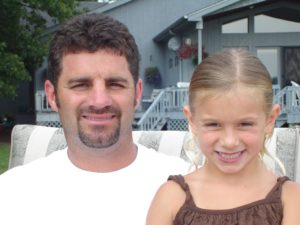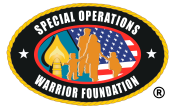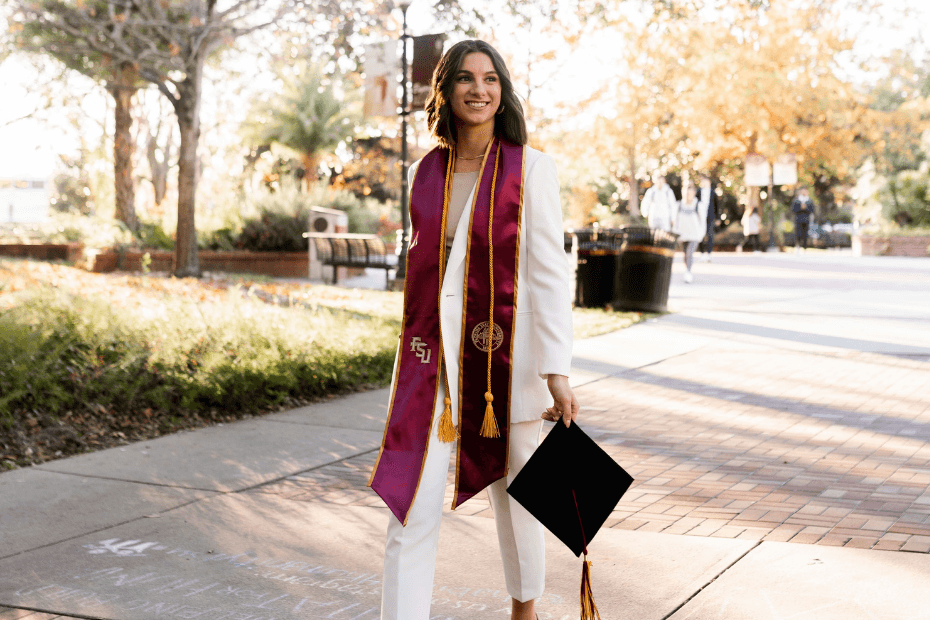Sidney Dyer was approximately six years old when she lost her Green Beret father, CW2 Scott Dyer, who was killed in action in Afghanistan in 2006 while serving with 3rd SFG. Sidney graduated in December from Florida State University, Cum Laude, with a Bachelor of Science degree in Sport Management, along with a Minor in Communications. Utilizing SOWF’s College to Career program, Sidney worked closely with our Scholarships and Family Outreach Team to prepare for her future. Sidney joined SOWF’s own, Jess Bolen, for a brief Q & A about life after her father’s passing.
Q: You were six years old when your father was killed in action. Though you were young, I am curious what memories you have of your dad.
A: Somehow the two memories I have are still vivid enough that they don’t come from the memory of memory. The first memory was the night I was at the computer and my mom was at the back of the house. I heard a knock; it was dark out. I ran up to the front window next to the door and three men were waiting in full dress blues and I remember yelling out to my mom that there were men at the door, and she said ‘don’t open the door’ but I already had it swung open. That was the night we found out. But I am also left with the next memory. The problem is at this point after years of storytelling, I don’t know what’s my memory or someone else’s I’ve just clung to.
I have memories of having memories. I remember knowing he loved going to toy stores with us, he loved to shop and spend all day tinkering in stores. I have a memory that I used to be able to remember my sixth birthday, my parents rented me a limo to go to the park with all my friends, I was wearing my newest most favorite outfit and a blonde princess hair tie extension, and I remember I used to have the memory of me walking out to our backyard to sit in his lap until we left. I remember the joy I had at that moment. My mom took a picture of that moment and I think that’s why I have that memory so clearly.
I remember sitting on the kitchen counter under the bright kitchen light making a cake with star candles because he was coming home the next day and out of the darkness he appeared in uniform and surprised us all a night early.
I remember how much he loved to be involved in our school. He built my brother’s 5th-grade project of a North Carolina lighthouse project, and this thing was grand, with water, real grass, and a two-foot light house! He was so proud for my brother to turn it in, so proud that it stayed in the family for years. Each of my brother’s friends after him, my friends who were a year older and myself all turned in that same lighthouse. The teachers had to know but who could really say anything, right!
Q. Tell us what you consider to be your father’s legacy, both as a father and as a man. What enduring values were important to him?
A: Family and family events, being there for those was the most important thing to him, he may have had a job to do in another country but when he was home, he was all in. I have been told by countless team members of his, though they didn’t meet me before he passed, they knew who I was because he never stopped talking about how proud he was of us. He loved holidays and events, anywhere he got the chance to show how fiercely he loved us. He loved the life he made with us and cherished it, and I believe that is why he did what he did for a living so well. He went off to war not because he wanted to or because he was good at it… he went because he loved us so much that he wanted to go to the ends of the earth to protect what he was most proud to call his.
Q: Going back to when your father passed away… Can you tell me what that was like hearing that news at six years old?
A: It was like nothing at all at first, there was no emotion. I asked if I had to go to school the next day after they told me because it was a Tuesday or something. I didn’t know I had really lost anything yet because at the time he had been gone for a few months. It wasn’t until my mom, my brother, and I started handling life’s hardships that I realized we had a deeper understanding of pain and that grief is expressed in many different ways, but one things remains that if we can get through that tragedy, we can make it through whatever we were facing.
Q: What has been the most challenging thing about the loss of your father throughout your life?
A: In moments like these where I am celebrating anything—my prom, my graduation from high school top ten, my college graduation, when I know I am doing great, that I am doing well—I can’t share that with him. That is what has been hardest for me, and it’s only started to make sense recently. I know I am more similar in personality to my dad than my mom, so I know truly my dad was meant to be my best friend, and so when I’m celebrating or hurting as I’ve gotten older, I am having the feeling my family had from the beginning. Like something Is missing.
It has been really challenging to know we were so similar in things like the way we speak, spend money, make decisions, and want to care for others while I didn’t know any of these things about him when I was a child and lost him. I just know I would feel different emotionally if I could have grown up with and gotten to know all these things on my own than through others’ stories of him. Others remember his voice, his demeanor, his life, and I am left with getting to know him and loving him through others’ memories of him.
Q: Do you remember when SOWF came into your life? What are your earliest memories of Special Operations Warrior Foundation?
A: My brother is 4 years older than I am, so my brother had the introduction when he went to school, and I knew I would eventually, too, but really it was when I started taking a college tour trip. I was communicating all on my own with SOWF and with two different counselors named Lisa then.
Q: Aside from the education funding itself, what has been the most important thing that SOWF has contributed to your life?
A: Emotional support, I knew I could call them any time during my freshman year. And, I knew they would have advice. My mom had a hard time with [the military’s] survivor’s outreach and the paperwork with my brother however it was reassuring when SOWF steered me in the right direction and spent as much time as was needed to keep me moving forward.
Q: There will be other young girls who will lose their fathers in the line of duty. Based on your experience, what would you like them to know?
A: I know from losing my own father years ago, there are no right words that are going to make the pain go away or make it easier to accept. I guess what I have learned is that it is good to lean into that feeling of hurt and loss when you think about it, because even though it hurts, it means you remember the happiness their presence did bring. People we lose only live on through your memory of them, so if you close that off, you are also closing off the memory of loving them. Sometimes it feels lonely in the world. The community at SOWF is available to sympathize or just listen.
Q: Tell us a little about your plans for the future, and what you’d like to do now with your career.
A: I am currently applying to grad schools, with my sights set on a school in Washington D.C. In the future, I would like to work in corporate social responsibility for professional sports teams. I learned a few years ago the impact sport can have outside of the sporting event and how much potential there is to do good in the world through sport. I want to be the person that creates and carries out initiatives that make the world of sport and thus the world, a more loving, caring, and accepting environment.
Q: If there is one thing you could dream of doing in the future, what would that be?
A: I do want to take six months off to live in Europe after my graduation from grad school. I would love to see all the historical cities around the world!


